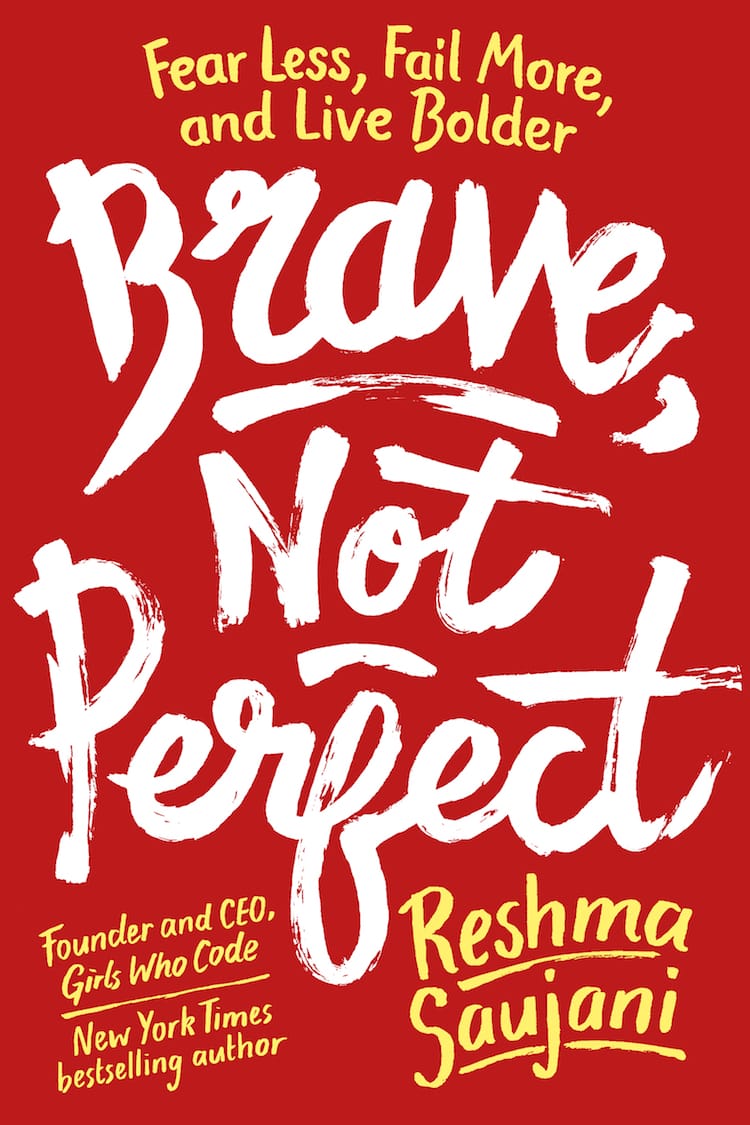Each month, Bumble Bizz taps an influential entrepreneur to have a private conversation with a user looking for advice. So far, we’ve heard from luminaries including Wharton professor and management expert Adam Grant, publishing maven Elaine Welteroth, and Kat Cole, who rose from a role as a Hooters waitress to president of Focus Brands. This month, meet Reshma Saujani, founder and CEO of nonprofit Girls Who Code and author of new book “Brave, Not Perfect.” Reshma spoke with Bumble Bizz on overcoming the quest for perfection and embracing a mindset of resilience, vulnerability, and compassion for oneself.
Stay tuned to the Let’s Talk Bizzness series to see who’s offering their valuable time and knowledge next.
Bumble Bizz: In your new book, you implore women and girls to embrace bravery versus perfection. What was your impetus to write this, and why do you think this message is timely?
Reshma: I wrote this book because I think we need a bravery revolution. If every woman could raise her hand for the assignment she doesn’t think she’s qualified for, or get out of the relationship that she knows isn’t right for her, or start that business she’s always dreamed of, we would literally run the world. But we can’t get there until we undo the “perfect girl” training we’ve had our whole lives, and that’s what “Brave, Not Perfect” aims to do.

B: Can you think of times as you launched and grew Girls Who Code, or when you ran for office, when you wish you’d left “perfect” behind? How did that realization manifest itself?
R: When I ran for Congress in 2010, my inner perfectionist was running the show. I obsessed over having the perfect, super polished stump speech. I tried to dress the part, wearing boxy suits and tying my hair back in a ponytail every day. The problem is that it wasn’t me — and voters felt that. Once I failed — lost the race miserably and lived to talk about it — it really hit home that perfection doesn’t get you where you think it will.
B: How can more experienced women model bravery versus perfection in the workplace to junior women?
R: So many women buy into this myth that we have to be perfect to get ahead, and so we are terrified of tiny mistakes. More experienced women can debunk that myth by being open about how they got where they are, owning up to some of the bumps in the road, and more importantly creating an environment where it’s safe for women to fail. That’s the only way people can be brave enough to take risks.
B: Do you have any advice for young or less experienced women in seeking out role models or mentors?
R: Look for someone who hasn’t followed a straight line in her career, and who isn’t afraid to talk about the challenges that came with taking risks. And as someone who mentors a lot and doesn’t have a ton of time, know what you are looking for. Don’t just say, “Can we have coffee?” say, “Can we have coffee because I’m trying to do X and I’d love to get your advice on Y.”
B: What needs to happen for women to stop being held to entirely different standards than men at work?
R: We absolutely have to address unconscious bias, because it’s completely true that women are punished when they aren’t “perfect” and that needs to change. Part of the work we can do as women is in having each other’s backs — supporting the Sisterhood. When a female colleague speaks up in a meeting with an unpopular opinion and men roll their eyes, call it out. The more we all model brave behavior, the standards will change. We will be the rule not the exception.
B: What would you tell your “inner girl” — you at age 12, maybe — about the quest for perfection? What would be your advice to her?
R: I would tell her that being a go-getter doesn’t mean you are gutsy. My whole life people would have called me ambitious. I was focused, I was always achieving, always climbing. But I was going after the wrong the things, and so even after getting them I wasn’t happy. I wish I had known that the bravest thing I could do was to pursue my passion, even if that path didn’t look so perfect.




Social Media